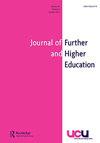正念干预对提高参与度的影响
IF 2.4
Q1 EDUCATION & EDUCATIONAL RESEARCH
引用次数: 0
摘要
摘要我们目前的大学生群体,即Z世代,大多是在一个数字连接的世界中长大的,可以使用各种技术设备和社交媒体平台。虽然技术有助于吸引学生,但在学习环境中,许多学生会花费大量时间在从事非学习活动的设备之间切换。这会导致参与度下降,从而对他们的学习成绩产生不利影响。相反,能够自我调节技术使用的学生更有可能参与学习过程。正念是一种鼓励学生自我调节思想和行为以完成任务的策略。先前的研究主要关注学生在课堂上的技术使用、自我调节和正念,以提高参与度。这项研究通过调查高等教育商学院一年级学生的短期正念练习,为当前的研究锦上添花。本文考察了两种正念干预措施对鼓励学生自我调节课堂技术使用和提高参与度的有用性。本文采用批判现实主义的视角,通过学生调查和焦点小组,结合了定量和定性数据分析。29名一年级本科生接受了正念干预。结果表明,正念干预提高了学生的自我调节能力,有助于学生在大学里的参与度和联系感。本文章由计算机程序翻译,如有差异,请以英文原文为准。
The impact of mindfulness interventions in higher education to enhance engagement
ABSTRACT Most of our current university student cohort, known as GenZ, have grown-up in a digitally connected world with access to various technological devices and social-media platforms. While technology can assist to engage students, in the learning environment many students spend a significant amount of time switching between devices engaging in non-learning activities. This results in decreased engagement which can adversely affect their academic performance. Conversely, students who can self-regulate their technology usage are more likely to be engaged in the learning process. Mindfulness is a strategy that can encourage students to self-regulate their thoughts and behaviours to stay on task. Previous research has focused on student’s in-class technology usage, self-regulation and mindfulness to enhance engagement. This study adds to current research by investigating short mindfulness practices in a higher education first year business degree. The paper examines the usefulness of two mindfulness interventions to encourage students to self-regulate their in-class technology use and enhance engagement. Using a critical realist lens, the paper incorporates quantitative and qualitative data analyses through student surveys and focus groups. Twenty-nine first year undergraduate students were exposed to the mindfulness interventions. Results indicate the mindfulness interventions improved students’ ability to self-regulate, contributing to student engagement and feeling connected at university.
求助全文
通过发布文献求助,成功后即可免费获取论文全文。
去求助
来源期刊

JOURNAL OF FURTHER AND HIGHER EDUCATION
EDUCATION & EDUCATIONAL RESEARCH-
CiteScore
5.20
自引率
4.30%
发文量
80
期刊介绍:
Journal of Further and Higher Education is an international, peer-reviewed journal publishing scholarly work that represents the whole field of post-16 education and training. The journal engages with a diverse range of topics within the field including management and administration, teacher education and training, curriculum, staff and institutional development, and teaching and learning strategies and processes. Through encouraging engagement with and around policy, contemporary pedagogic issues and professional concerns within different educational systems around the globe, Journal of Further and Higher Education is committed to promoting excellence by providing a forum for scholarly debate and evaluation. Articles that are accepted for publication probe and offer original insights in an accessible, succinct style, and debate and critique practice, research, theory. They offer informed perspectives on contextual and professional matters and critically examine the relationship between theory and practice across the spectrum of further and higher education.
 求助内容:
求助内容: 应助结果提醒方式:
应助结果提醒方式:


